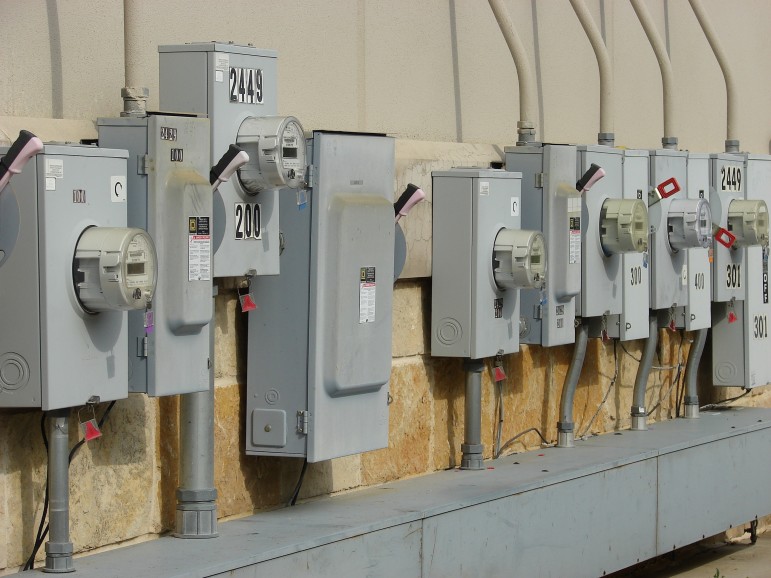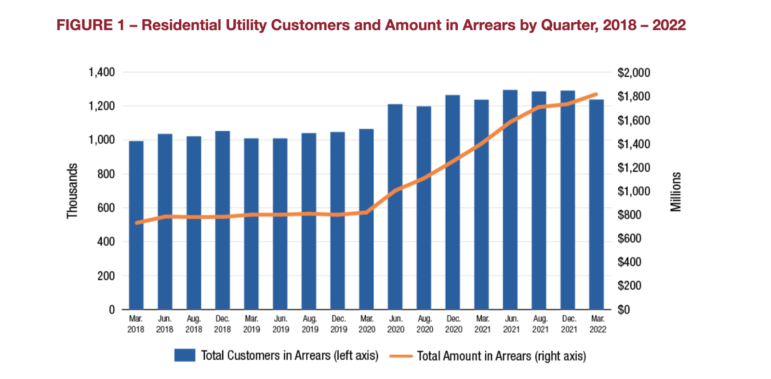The Council on July 14 green-lit the creation of an Office of the Utility Advocate tasked with providing a link between consumers and the companies that deliver gas, electricity, steam and water, as well as phone and cable service.

Loadmaster
The Council on July 14 approved the creation of a new municipal office tasked with advocating for utility customers and passed a legislative package intended to address mounting debt.
Just before a weeklong heat wave hit the five boroughs, the City Council approved the creation of a new municipal office tasked with advocating for utility customers and passed a legislative package intended to address mounting debt. The new measures come as the state’s Public Service Commission considers a proposal by Con Edison to raise its rates next year.
The Council on July 14 green-lit the creation of an Office of the Utility Advocate to provide a link between consumers and the companies that deliver gas, electricity, steam and water, as well as phone and cable service.
The office will also receive feedback from city residents, assist with financial aid when utility costs become unaffordable and testify on behalf of consumers on rate cases, during which utility companies seek state approval to increase their prices.
“Utility bills are a reality for all New Yorkers, and when rates rise there are consequences to monthly and household budgets,” said Department of Consumer and Worker Protection Executive Director Steven Ettannani in testimony at a June Council hearing. “When this happens, individuals, families, and small businesses are forced to find a way to make ends meet, often at the expense of something else.”
Earlier this year, consumers were hit with sticker shock when utility rates shot up significantly without warning. At the time, Con Edison cited higher-than-usual supply costs by power generators—a nearly threefold increase per megawatt, according to materials the company submitted to the committee. The higher rates were compounded with the closure of the Indian Point nuclear power plant, the Russian invasion of Ukraine and a 10 percent increase in residential usage due to cold temperatures, the report added.
“Con Edison buys energy on the wholesale market and provides it to customers at the same price we paid without a profit. We don’t generate electricity,” the company told customers in a February email.
A report by the state comptroller released last week with data from March 2022 showed that across New York, the number of consumers in utility arrears and total amount in unpaid bills have both increased since March 2020. The report also noted the significant average overdue amount per consumer—$986 for National Grid New York customers, and $2,162 for Con Edison customers.

NY State Comptroller’s Office
A moratorium on utility shut-offs dating back to the spring of 2020 expired at the end of last year, and utility companies were permitted to turn off heat and electricity for consumers in arrears as of April 15.
Con Edison told City Limits it has not turned off the heat or electricity for any residential customers since the March 2020 start of the pandemic. The state comptroller’s report showed that in March, Con Edison’s customers made up nearly half of all consumers in arrears.
As of June, Con Edison had 386,372 residential customers who were overdue for a total of $829 million, according to a company spokesperson. That month, the state announced the Gas and Electric Bill Relief Program funded through a $567 million commitment from Gov. Kathy Hochul to relieve the debt burden from low-income residents with overdue bills.
The Con Edison spokesperson urged customers with utility debt to contact the company to create a payment plan or get referrals to social service agencies that can assist them with payment. The company supported the relief program, they added.
Con Edison did not support the newly created city utility advocate post, however.
In its testimony on the bill, Con Edison representatives said the position would be “duplicative and unnecessary.”
But Ian Donaldson, an administrator with the Public Utility Law Project, which assists consumers with unpaid utility bills, testified in favor of the office and said an advocate would be a useful point person to help residents navigate the various agencies involved in regulating utilities.
“Utility bills often invoke confusion, stress or frustration, especially when someone has fallen behind financially,” Donaldson said. “The aid of another advocate to help City residents navigate these channels and get the help they need would be a very welcomed addition.”
The Council also approved three resolutions related to utility bills. The resolutions—which do not create policy but encourage the state lawmakers to take legislative action—called for New York State to expand relief programs that assist with utility bills and urged Con Edison to improve communication with consumers about rising prices.
In addition, the Council requested an amendment to the Public Service Law preventing rate hikes of more than a certain percentage each year, though they did not recommend a specific cap.
The Public Service Commission (PSC) is currently reviewing a possible rate hike, which the company submitted for state approval in January and hopes to implement next year. If approved by the PSC, the state agency that regulates the company’s rates and terms of service, the delivery charges would increase 9.7 percent for electric and 14.5 percent for gas, a Con Edison representative told City Limits.
Earlier this month, 49 elected officials, including councilmembers and state lawmakers, co-signed a letter to PSC requesting it deny the proposal for rate increases, citing a violation of the Climate and Community Protection Act, New York’s aggressive climate legislation. (Note: The letter listed rate percentage increases higher than what the Con Edison spokesperson says the company has requested.)
“Con Edison must do more to help its customers move to technologies and energy sources that rely on renewable, locally-generated energy that is resistant to world energy market spikes,” the letter reads. “Instead, Con Edison seeks to continue investing in fossil fuel infrastructure, short-sightedly hoping to push these costs onto customers who are held hostage by the Company’s monopoly power.”
The company cites the high cost of business in New York City as the driving force for its proposed delivery rate increases, which they say make up one-third of their customer’s energy bills. (The rest of the bill is supply, which is determined by the market, and taxes, they added.)
A spokesperson said a lower property tax bill would help offset costs. Con Edison paid $2 billion in property taxes last year, the spokesperson added—a 300 percent increase since 2000. “High property taxes are a driver of costs in the rate filing,” he said.
The PSC spends 11 months reviewing the request to increase rates, accepting public comment and testimony. All evidence and materials submitted during the process are reviewed by administrative law judges, who then make a recommendation.
A PSC spokesperson said the department expects to make a decision on the delivery rates after the review process ends in December, unless the company files an extension.
“Department staff are pouring over the utility’s books to identify ways to cut costs,” the spokesperson added. “In the last Con Edison rate case, for example, the PSC approved rates that were fully 75 percent below what was originally requested. Rest assured, nothing about Con Edison’s proposed rate increase will be taken for granted or assumed.”








